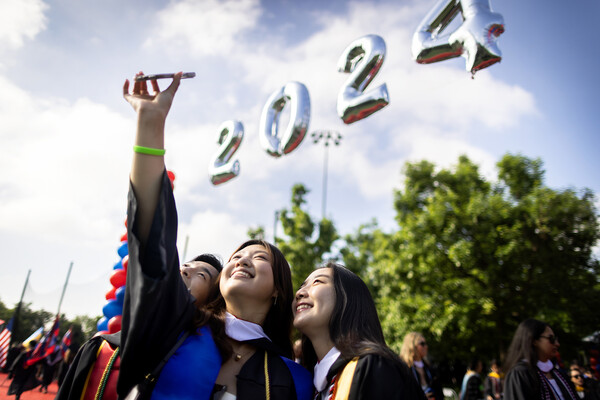AWARDS AND HONORS
NEH funds two Penn projects
The National Endowment for the Humanities awarded two large grants and a summer research stipend to Penn scholars.
The Pennsylvania Sumerian Dictionary project, directed by Ake W. Sjoberg, Ph.D., professor emeritus of Assyrian and curator of the Museium's tablet collection, received $270,600. The project, which began in 1976 with its first NEH grant, has so far published volumes on letters A and B; Sumerian has 18 letters.
The Shakespeare Web site received $180,000 (see related story).
And Warren G. Breckman, Ph.D. received a summer stipend for research on contemporary French political thought.
Planners recognized
The Department of City and Regional Planning received the first President's Award from the American Institute of Certified Planners for the excellence of its program and for its return from near extinction to a role of leadership in the field. The department, chaired by Anthony Tomazinis, has five other standing faculty -- Eugenie Birch; Gary Hack, dean of the Graduate School of Fine Arts; John Keene; Seymour Mandelbaum; and Stephen Putman.
Top U.K. fellowship to American
Glenn McGee, Ph.D., associate director for education at the Center for Biotheics, was awarded a Commonwealth Foundation Atlantic Fellowship, awarded by the British government to American professionals in public, business or philanthropic sectors. The top award of its kind, McGee was selected out of more than 900 candidates, and his application was rated highest of the 10 fellows selected for this honor. The grant will be used to develop public policy for new reproductive techniques.
Neurology awards
Virginia M.Y. Lee (on left) and John Trojanowski
Two Penn faculty -- Virginia M.Y. Lee, Ph.D., and John Trojanowski, M.D., Ph.D., co-directors at the Center for Neurodegenerative Disease Research and professors at the School of Medicine -- were awarded the Potamkin Prize for research in Pick's, Alzheimer's and related diseases. They will share the $100,000 award with Michel Goedert of the Medical Research Council Laboratory of Molecular Bilogy in Cambridge, England. The three winners collaborated in some of their research studies, which have provided key aspects in understanding Alzheimer's disease.
The award will be presented at the American Academy of Neurology 50th Anniversary Annual Meeting.
Geoffrey K. Aguirre
Other Penn honorees at the meeting include medical student Geoffrey K. Aguirre, who was awarded the G. Milton Shy Award for his essay on topographically disoriented patients; neurologist Kenneth Fischbeck, M.D., of the School of Medicine, who was awarded the George C. Cotzias Lecture recognition of his research in repeat expansion neurodegenerative disease; and Marc A. Dichter, M.D., Ph.D., professor of neurology, honored as presenter of the Decade of the Brain lecture, on how the brain develops a propensity for epileptic seizures.Schweitzer faculty
Anthony L. Rostain, M.D, was selected by the Albert Schweitzer Institute for the Humanities to serve as a member of the 1998 Schweitzer faculty. Rostain, director of medical student education in psychiatry, an associate professor of psychiatry and co director of the Pediatric Neuropsychiatry Program at Children's Hospital of Philadelphia, returned last week from a visit under the institute's auspices to Lithuania and Macedonia where he shared information on attention deficit hyperactivity disorder, school-based psychiatric services and the overlap between psychiatry and neurology.
Fellows named
Andrew M. Rappe, assistant professor of chemistry, was named an Alfred P. Sloan Research Fellow for the next two years.
Edwin G. Abel, assistant professor of biology, received two fellowships -- a John Merck Scholars Award in the Biology of Developmental Disabilities in Children and a Klingenstein Fellowship Award in Neurosciences. The Merck award is for $240,000 over four years, and the Klingenstein is $120,000 to support work on the molecular basis of learning and memory.
Eye Research
Jeffrey W. Berger, M.D., Ph.D., has been granted a $160,000 Career Development Award for eye research on treatment for macular degeneration. This is the third Career Development award for the University Pennsylvania School of Medicine, Scheie Eye Institute from Research to Prevent Blindness Inc., which established the awards in 1990 to attract young physicians and basic scientists to eye research.







